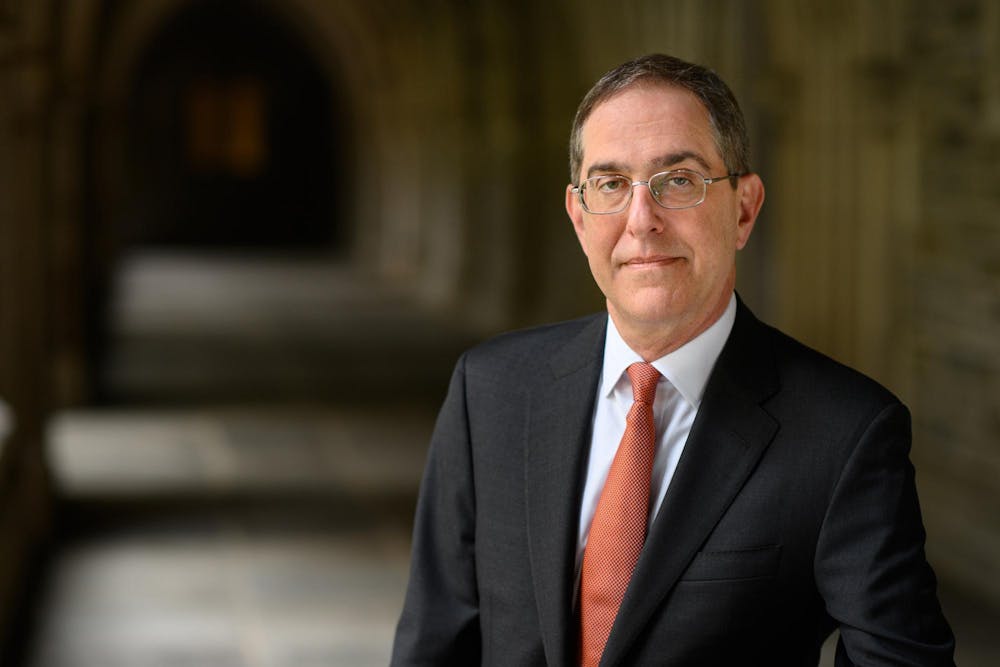Confrontations at Columbia, Yale, and other campuses around the country have highlighted the importance of “time, place, and manner” regulations to universities’ academic and educational missions. Because the enforcement of these rules is essential to our community as well, I wanted to offer some observations about their role at Princeton and their relationship to other free speech principles.
Princeton’s free expression policy, like the First Amendment to the United States Constitution, protects a strikingly broad range of speech. It “guarantees all members of the University community the broadest possible latitude to speak, write, listen, challenge, and learn.” It specifically protects even speech that “most members of the University community [deem] to be offensive, unwise, immoral, or wrong-headed.”
Over the course of this academic year, we have seen again just how broad these rights are. In August and September, for example, I resisted calls to censor or condemn a controversial book that criticized Israel in harsh terms. In subsequent months, the University repeatedly protected the right to protest even when those protests included chants offensive to many members of the University — including to me personally.
Despite its breadth, Princeton’s free speech policy — again, like the First Amendment to the Constitution — contains exceptions. For example, it prohibits genuine threats and harassment. It also explicitly recognizes that “the University may reasonably regulate the time, place, and manner of expression to ensure that it does not disrupt the ordinary activities of the University.”
The University thus may, and indeed does, limit the times and places where protests can occur. It may, and indeed does, prohibit tactics, such as encampments or the occupation of buildings, that interfere with the scholarly and educational mission of the University or that increase safety risks to members of the University community.
These time, place, and manner regulations are viewpoint-neutral and content-neutral. They apply to any protest or event, regardless of which side they take or what issues they raise.
Time, place, and manner regulations are fully consistent with — indeed, they are necessary to — Princeton’s commitment to free speech. The purpose of our policy is “to promote a lively and fearless freedom of debate and deliberation,” not simply to maximize expression in all its forms, no matter how disruptive.
Dialogue, debate, and deliberation depend upon maintaining a campus that is free from intimidation, obstruction, risks to physical safety, or other impediments to the University’s scholarship, research, and teaching missions.

Princeton’s time, place, and manner regulations include a clear and explicit prohibition upon encampments. They provide that “camping in vehicles, tents, or other structures is not permitted on campus. Sleeping in outdoor space of any kind is prohibited.”
Encampments can obstruct others from moving freely or conducting University business. They can create health and safety risks. They require significant staff time to keep occupants and bystanders safe, thereby diverting people and resources from fulfilling their primary purpose. They can intimidate community members who must walk past them. There is no practical way to bar outsiders from joining the encampments.
As recent events vividly illustrate, encampments are also prone to become sites of confrontation. Columbia University moved classes online because of concerns about the safety of its students. At Yale University, a student reportedly had to seek medical attention after an altercation at an encampment.
At ordinary protests, our Free Expression Facilitators, in partnership with the Department of Public Safety, work assiduously to minimize or de-escalate confrontations before they become harmful; the 24/7 nature of encampments makes that assignment nearly impossible.

Our ability to discuss difficult, sensitive topics depends partly on the culture of our community. I am grateful to everyone who has helped Princeton to talk constructively about hard questions during this very challenging year.
Our success also depends on the consistent application of our policies protecting free speech. Princeton will continue to enforce those policies resolutely, including both this University’s expansive protections for the expression of controversial ideas and the time, place, and manner regulations that enable us to engage in thoughtful dialogue, debate, and deliberation about those ideas.
Christopher Eisgruber ’83 serves as Princeton University’s 20th president.








